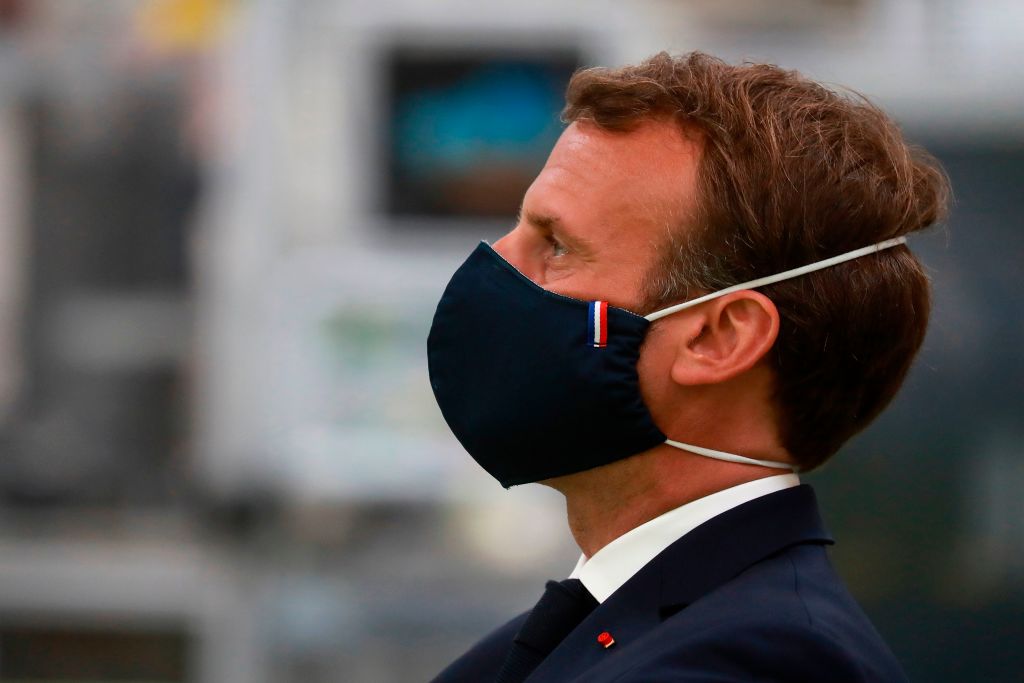Last week the New York Times praised President Macron’s management of COVID-19 and asked why the French were not impressed. None were more surprised by the article than the French media, who were at least pleased by the external praise.
Perhaps the Times’s off-beam musings can be put down to its internecine distractions, for the French picture is very different on serious inspection. Other than the publicly acknowledged failings of inadequate preparation in terms of masks, ventilators, emergency beds and testing, there is the crucial issue of the economic impact, which the NYT didn’t even discuss. With media attention focused on the economic effects of COVID-19 on Italian and Spanish debt levels, France’s economy is often overlooked. Yet the debt mountain of the second largest economy in the Eurozone is soaring as a result of COVID — making for a baleful prognosis of the French economy and its politics.
Since the creation of the Euro 20 years ago the French debt to GDP ratio has increased at twice the rate of the European average, according to the Governor of the Bank of France in an interview yesterday. At the end of this year, he continued, it will hit 120 percent, beaten only by Italy (on 158.9 percent) and Greece (196.4 percent). The French budget deficit will be 11.4 percent of GDP, according to the third version of the French finance bill being presented to parliament this week, which puts the deficit even higher at 120.9 percent.
Unemployment — a lagging indicator — will be at 11 percent in 2021. According to Eurostat figures yesterday, France’s economy contracted in the first quarter of 2020 by around 5 percent — the worst of all 27 EU members, along with Italy. The OECD today estimates that this year France’s economy will be one of the worst affected in the world, with GDP contracting between 11.4 and 14.1 percent. Though some of these statistics are provisional, they raise a number of important political questions about France’s future.
Recriminations against France’s lockdown regime — one of the world’s most stringent — are currently underway. Over 63 judicial cases against the government for corporate manslaughter are coming to court and will scrutinize its overall management of the crisis. As the atrocious economic data flows in, it is being asked whether such a long and widespread shutdown was justified, given that French deaths from coronavirus are no better than elsewhere — and worse if one includes deaths at home (which French official statistics still do not). And this is before the physical shock of unemployment is felt by most people — who have been shielded for the most part by a generous furlough scheme.
[special_offer]
The impact on the popularity of President Macron and his government will be serious. Already at rock bottom before the crisis as a result of the yellow vest movement and national strikes, Macron did not benefit from the ‘rally round the flag’ seen in other countries and his approval rating has never climbed above a low 40 percent. On 28 June 28 the second round of local elections — delayed by the epidemic — will take place and Macron’s LREM party is likely to take a pasting, compounded by its lack of a local grassroots power-base. Worse still, some 20 of Macron’s MPs have recently defected from his party, denying him his overall parliamentary majority and forcing him to rely heavily on his centrist allies. With the 2022 presidential elections looming, Macron’s widespread liberal reform program is on hold and many are turning to radical solutions.
For the moment Macron could be saved by the absence of any meaningful opposition on the traditional right and left. But according to opinion polls, the French electorate will have fewer qualms about voting for the far-right Marine Le Pen in a second-round run-off than they did in the past. Just a year ago in the 2019 European elections Le Pen’s Rassemblement National beat Macron’s party, and gained 23.3 per cent of the vote — with a claim to being France’s largest party. In March this year — before the COVID crisis — an opinion poll carried out for Le Monde showed 56 percent of respondents believed Marine Le Pen could be the next French President, up 9 percent on a year ago and up 15 points among those with left-wing sympathies.
The health dimension of COVID-19 in France is coming to an end. But considerably more worrying and far-reaching are the looming economic and political consequences of Macron’s management of the crisis. France is not alone in this. But in France — the traditional laboratory of political and societal upheaval — the effects could be historic.
This article was originally published onThe Spectator’s UK website.

























